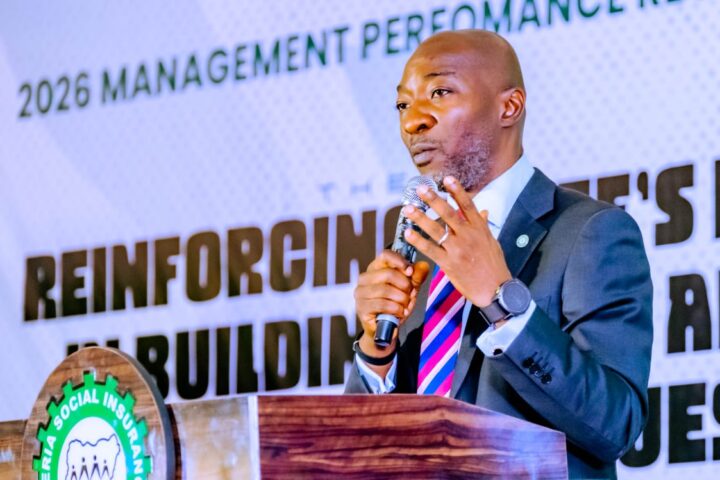By Professor Abiodun Raufu
In Nigeria, the ornate chambers of justice often mask a troubling reality. The last resort for redress for the troubled elevates procedural formalities over substantive justice. While the phrase “justice delayed is justice denied” is frequently uttered, the harsher truth is that justice’s substance is often sacrificed on the altar of legal procedures and formalities.
The structure of Nigerian courts, rooted in colonial-era rules, technical labyrinths, and heavy reliance on process, has become a tool for the powerful and even the government to evade accountability, leaving ordinary citizens trapped in legal limbo.
Many legal scholars trace the roots of Nigeria’s procedural-heavy system to the adoption of British-inspired civil and criminal procedure rules. And over several decades after independence, we have perfected a system that focuses more on whether you brought an application under the right order, whether you followed a certain sequence of steps, than on the need to offer the litigants substantive justice.
The distinction is critical. Procedural justice refers to the fairness of processes. Did the parties adhere to the rule? Were the form and formalities followed? Substantive justice is, however, the real goal of justice and not formalities.
Nigeria’s courts frequently prioritise the former, often at the expense of the latter. Procedural technicality has become a major cankerworm bedevilling the administration of justice in Nigeria.
For instance, litigants may win every factual argument in court, but if a filing was one day late, or a motion served without leave, the court may dismiss the matter without touching the merits. As documented, two out of every five cases dismissed by the trial and appellate courts are dismissed due to minor procedural errors.
Litigants spend years in court only to have their cases dismissed on technical grounds, leaving core issues unresolved and denying them the opportunity for substantive justice.
While proceduralism imposes delays on all litigants, its effect is uneven. Wealthy or politically connected defendants routinely deploy high-powered legal teams to exploit procedural rules, buying time, filing endless preliminary applications, or orchestrating strategic adjournments.
Rather than argue the substance of a case, lawyers spend time on arguments over adherence to procedure, wasting precious time.” In effect, the procedural structure becomes a fortress for privilege.
The wealthy and the powerful can afford to delay, drag court cases for years, secure bail, appeal technical rulings, and exit via procedural loopholes.
Meanwhile, less fortunate litigants, victims seeking redress, and citizens seeking justice often collapse under heavy legal costs, delays, and intimidation.
It has become the norm in Nigeria for government and the powerful to weaponise procedures to obstruct justice. In many high-profile corruption cases, accused public office holders, through procedural rigmarole, have worn down the system, caused witnesses to retract, and frustrated investigations until momentum vanished. This is not simply inefficiency. It is a conscious strategy. File frivolous motions, seek adjournments, challenge jurisdiction, exploit technical defects in pleadings, all under the guise of “due process.
That is why the judiciary has been unable to help fight corruption, enabling public office holders to loot the public treasury with impunity. The result is that the status quo continues unchecked, the rich and the powerful, including corrupt politicians avoid accountability, ordinary citizens remain powerless, and we all continue to complain about the unfairness of our sociopolitical system.
What this unfortunate situation reveals is a legal culture that values the form over function—and a societal structure that allows the powerful to occupy the form while denying the function of justice to the marginalized.
Consequently, proceduralism eclipses substance, while justice becomes a mirage. Victims cannot access timely, meaningful redress. Ordinary citizens cannot rely on the law as a protector rather than an obstacle. The backlog of cases, exacerbated by delays, adjournments, and motions, is a visible symptom of the deeper rot in our judicial system.
Moreover, public confidence suffers. When justice appears to be only for the highest bidder, selective prosecution becomes the norm.
To reverse this trend, Nigeria must recalibrate its justice architecture. Judicial reform deserves urgent attention. One, court rules need to be revisited to eliminate archaic formalities and distinguish between substantive and purely technical defects. Legal scholars suggest shifting from mechanical rule compliance to an approach that emphasises justice over form.
The judiciary must also adopt active case-management techniques, set firm timelines, limit adjournments, and address the backlog. Without this, justice remains indefinitely deferred.
Furthermore, many litigants lack access simply because they cannot afford procedural games or protracted litigation. Strengthening legal aid, funding the courts properly, and providing equal representation are essential. Just as lawyers, judges, and prosecutors who use the rules to obstruct should face sanctions. The message must be clear: justice cannot be weaponised.
It is equally important that judicial training and legal education must emphasise the purpose of the law, to achieve fairness.
Nigeria stands at a pivotal crossroads. The rule of law is the bedrock of democracy, investment, human rights, and social stability. Yet, when procedure dominates substance, the law becomes a tool of obstruction rather than empowerment. The rich and powerful will continue to exploit the system unless we shift the equilibrium.
Substantive justice is not optional; it is foundational. For the man in the rural village seeking redress for land dispossession. For the entrepreneur enforcing a contract.
For the victim of state or corporate wrongdoing whose case is dismissed on a technicality. Justice delayed, deferred, distorted, or denied is no justice at all.
If Nigeria is to fulfil its promise, its legal system must serve all citizens equally—not just those with resources or connections. It’s time for procedural labyrinths to give way to substantive fairness. Otherwise, the law remains a fortress for the powerful, and justice a luxury for the few.
Professor Raufu, former Editor of Nigerian Tribune and ex-Managing Director and Editor-in-Chief of National Mirror Newspapers, is an Associate Professor of Criminal Justice at Southern University and A&M College, Baton Rouge, Louisiana, USA.



















